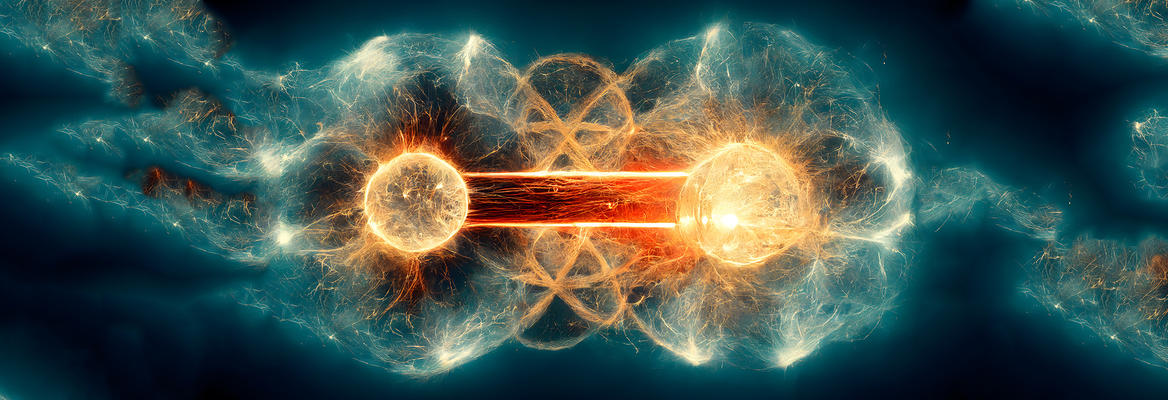Most people think the world consists of various distinctions ranging from fire and water to protons and electrons. But Heinrich Päs challenges this idea, arguing that quantum physics revives the ancient idea of universal oneness that Christianity unjustly excluded from our culture.
Modern physics revives an idea that is commonly associated with Asian philosophies or religions, but understood as utterly alien to Western or scientific thought. Monism adopts that everything in the universe is part of an indivisible, seamless whole or in other words: That All is One.
In the Upanishads, for example, one of the Sanskrit texts defining the spiritual core of Hinduism, the concept of “Brahma” is defined as holding together “all beings, all gods, all worlds, all breaths, all selves,” just like “all the spokes are held together in the hub and rim of a chariot-wheel.” In a similar way the Chinese philosophy of Taoism defines the Tao as “The One” that is creating and supporting the universe, “the beginning of heaven and earth” and “the ancestor of the myriad creatures”, according to the sixth-century-BCE Chinese sage Lao-tzu. Similar ideas exist in Mahayana and Zen Buddhism, and various mystic traditions.
A closer look at history reveals though that monism is neither exclusively Asian, nor alien to the European or scientific tradition. We still can observe today that the idea of an all-encompassing unity is common across many indigenous religions in the Americas, Africa, Asia, or Oceania that often embrace a sacred or spiritual concept of nature — from the ancient Egyptian goddess Isis that represented “all that has been and is and shall be” over the American Indians of the Northeast’s Great Spirit “Manitou” that inhabits animals, plants and rocks and can manifest itself in thunder and earthquakes to the concept of “lokahi” in the traditional religion of the Hawaiian Islands that reflects a “union of opposites” and a “harmony of diverse elements,” according to Hawaiian philosopher of religion Gwen Griffith-Dickson.
___
At least one crucial factor for the extensive decline of monistic philosophy in Western Europe was the dominant and political role attained by monotheistic religions, chief among them Christianity.
___
In Europe, the 6th century BCE Greek philosopher Heraclitus recapped monism in his fragment “from all things One and from One all things”, while his contemporary Parmenides describes “The One” as an indestructible, eternal, and timeless whole. Around the same time the Pythagoreans, a close-knit group of mathematician-philosophers, taught that “the One is the principle of all things” and that “matter and all beings have come into being from it.” Many of these threads converged in the philosophy of Plato who is said to have taught monism as a secret, unwritten doctrine at his academy. Later Neoplatonists such as the third-century-CE philosopher Plotinus who described “The One” as “all things in a transcendental way”, “the source of all things” or “Being’s generator”, became champions of monistic philosophy in the Roman empire. Everything but antipodal to science, it was a blend of Platonic and Pythagorean ideas with its decisive monistic flavor that inspired Copernicus and Kepler to search for harmonies in the cosmos, and Newton to devise his law of universal gravitation.





















Join the conversation